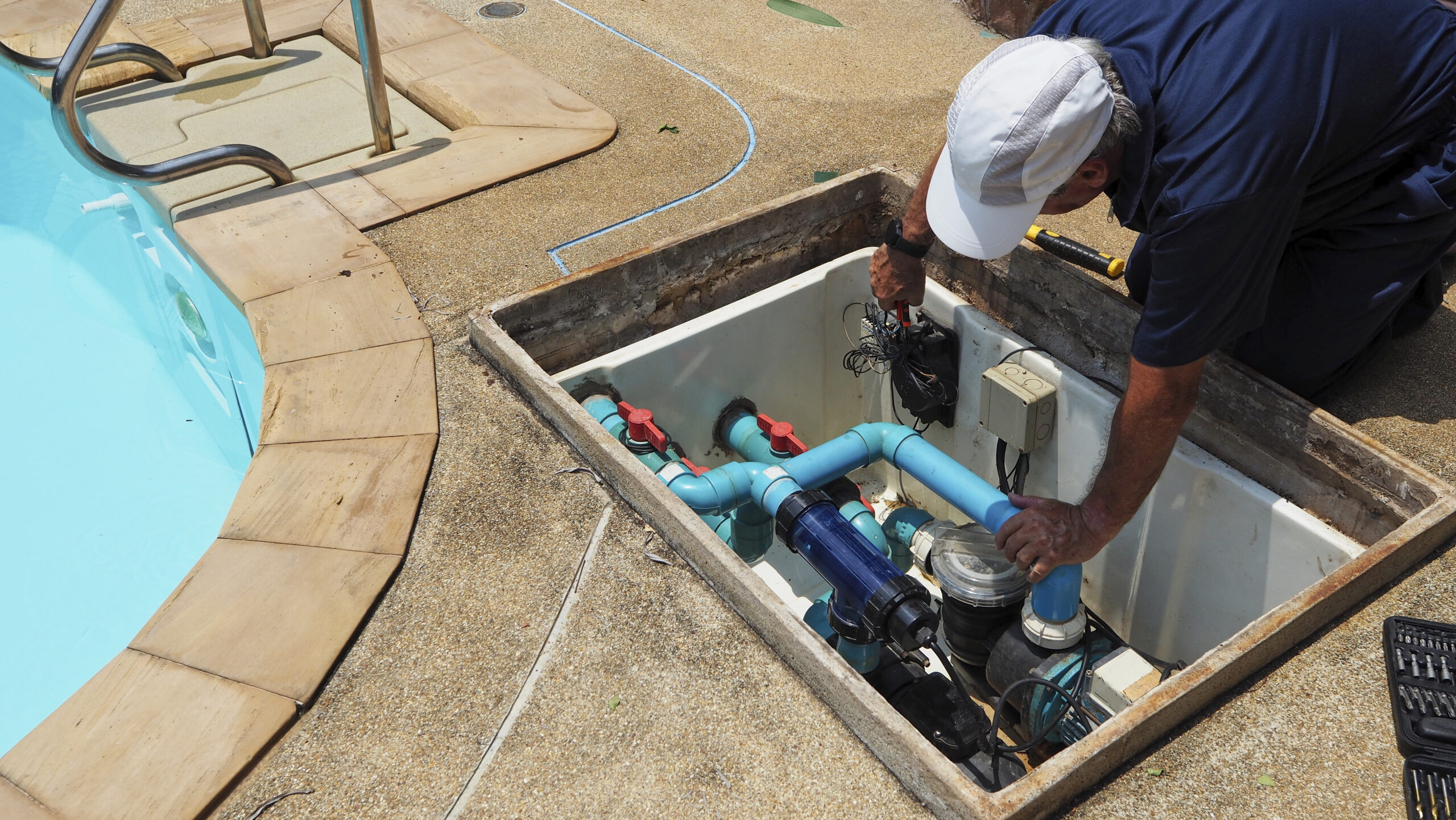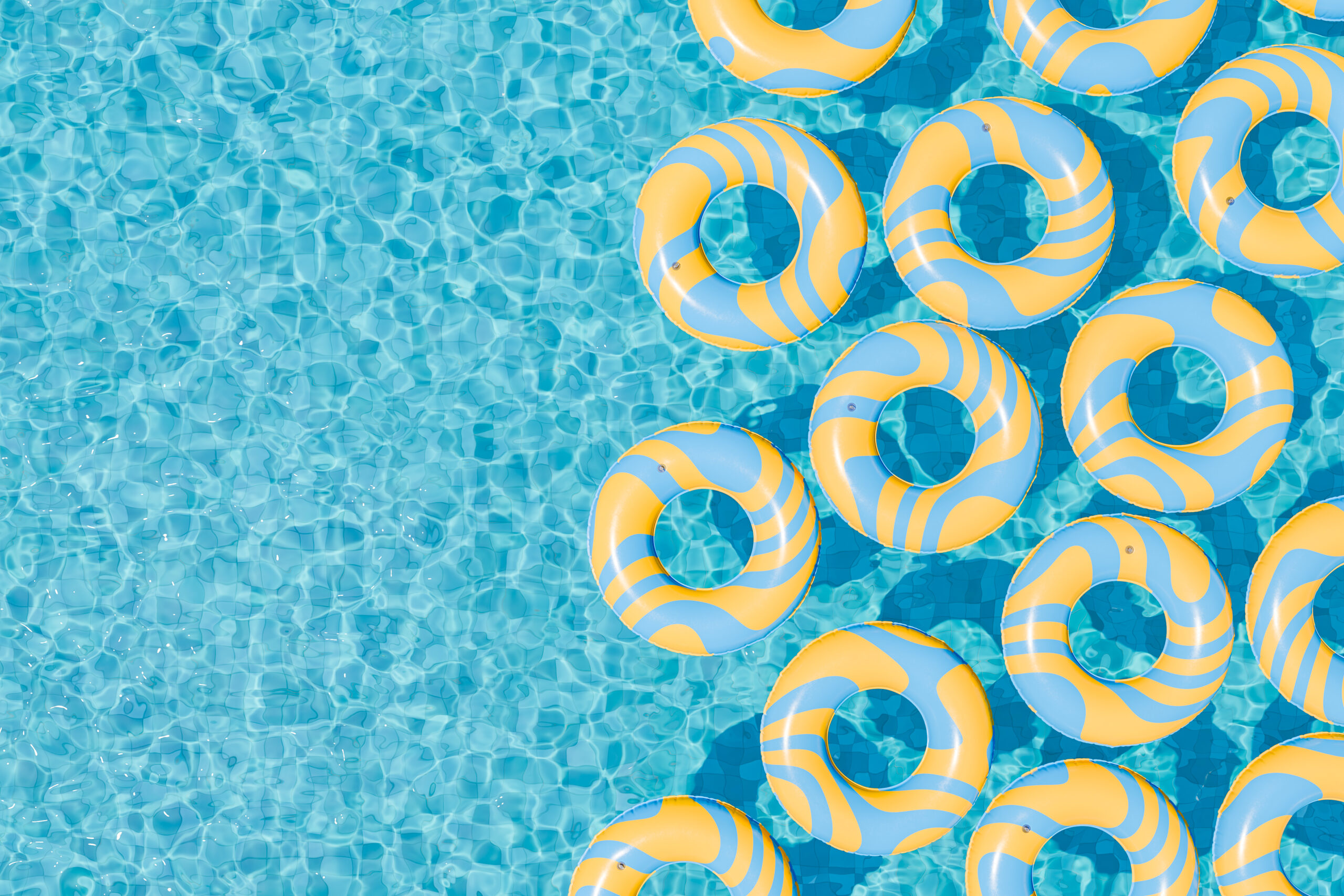
A well-functioning pool pump is crucial for maintaining a clean and healthy swimming environment. However, unusual noises from your pump can indicate underlying issues affecting its efficiency and longevity. In this blog post, we’ll explore common reasons for a noisy pool pump and offer practical solutions.
Understanding Pool Pump Malfunctions
A pool pump is vital to a swimming pool’s circulation system. It moves water from the pool through the filtration system and back. By maintaining proper water flow, the pump helps keep the pool clean and safe for swimming, preventing issues like algae growth and debris buildup.
If your pool pump is making loud noises, start by checking the water levels. Low water levels can cause air to enter the pump, leading to rattling or screeching sounds.
Other common issues that lead to a noisy pump include:
- Imbalance in the pump and housing: An imbalance can cause excessive vibrations that affect the pump’s overall performance.
- Internal blockage in the pump: Debris trapped inside can disrupt water flow, preventing the impeller from functioning efficiently.
- External blockage around the pump: Blockages around the pump can restrict airflow and water flow, forcing the pump to operate less effectively.
- Cavitation issues: Cavitation creates vapor bubbles in the pump that can collapse violently, potentially causing damage over time.
Identifying & Troubleshooting Pool Pump Noises
Identifying the noises from your pool pump is crucial for maintaining its health and performance. Different sounds can indicate different issues, from minor vibrations to significant mechanical problems.
Loud Noises
Consistent noises usually indicate normal operation, but sporadic sounds can signal potential issues like low water levels, a clogged impeller, or worn vibration pads.
To address these problems:
- Clean the pump impeller and basket to remove debris.
- Place a rubber mat under the pump to dampen vibrations.
Rattling Noises
If your pool pump is producing a rattling noise, it may be vibrating against the surface it’s sitting on. Vibration pads are intended to absorb these vibrations, but they can wear out over time and might need to be replaced.
Another possible cause of that rattling sound is cavitation, which occurs when the pump isn’t receiving enough water. This can lead to a noisy motor and could indicate that debris is obstructing the water flow.
To address these problems:
- Secure the motor to its base to minimize movement.
- Replace worn vibration pads or place a rubber mat underneath the pump to reduce vibrations.
- Remove debris from the skimmer, suction strainer, and suction pipe to correct cavitation.
Humming Noises
A loud humming noise from your pool pump can signal some potential issues that need attention. Often, it may indicate a buildup of debris, which can restrict water flow and affect the pump’s performance.
Alternatively, the humming sound might be related to a problem with the capacitor, a crucial component that helps start the motor.
To address clogs in the impeller, follow these steps:
- Turn off the pump and unscrew the pump housing.
- Carefully remove the pump assembly and gasket from the impeller.
- Clear away any visible debris.
- Reassemble the pump.
Dependable Manufacturer of Fiberglass Pools
Since 1989, Sun Pools has been dedicated to creating long-lasting, high-quality fiberglass pools that enhance outdoor living spaces.
Our impressive selection includes over 30 pool and spa designs in four beautiful colors, along with a variety of accessories to complement any homeowner’s style. Our pools are proudly made in the U.S. to ensure exceptional quality and durability.
Contact Sun Pools today to learn more about our wide selection of fiberglass pools.



